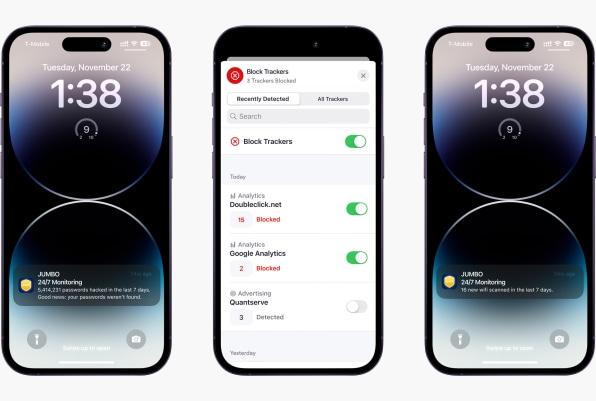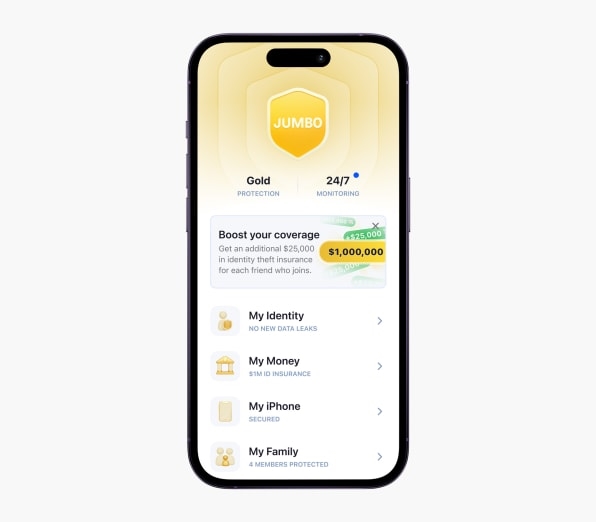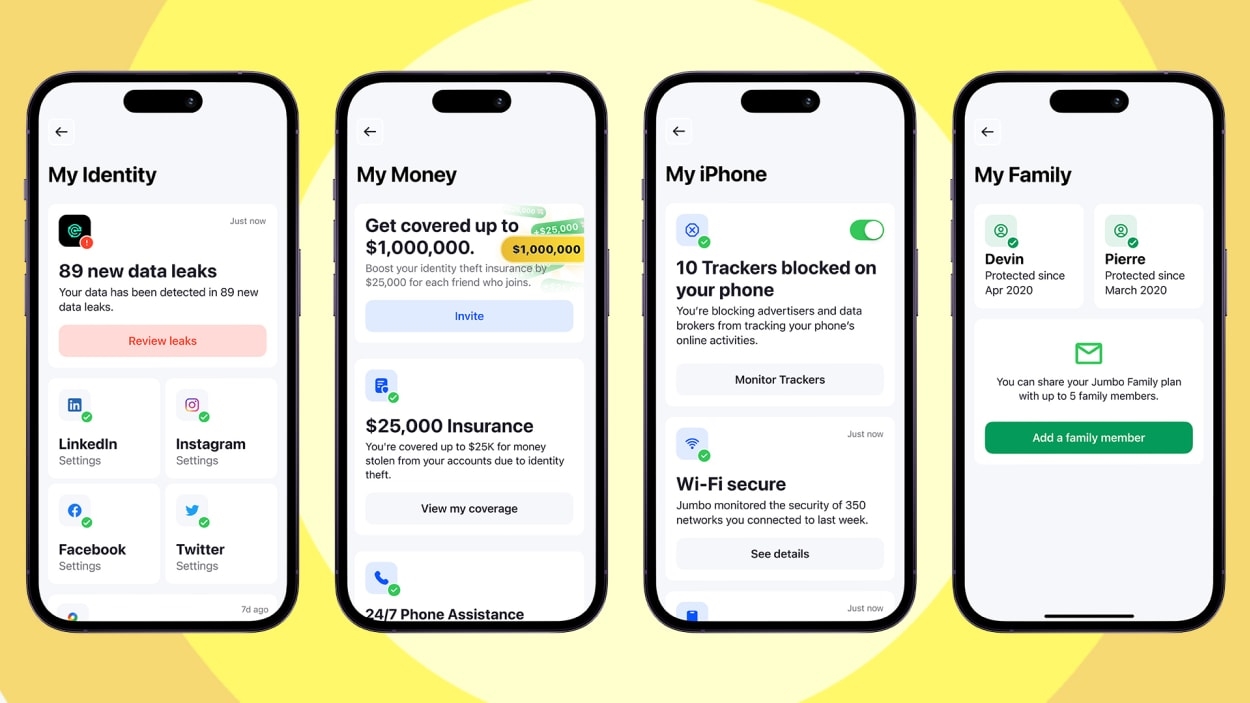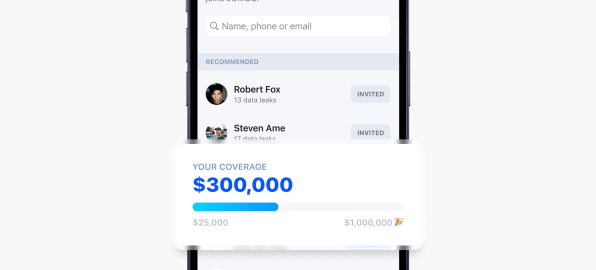When Jumbo launched in 2019, it promised to simplify the process of protecting your privacy and security.
With just a few taps, the app for iPhone and Android would improve your privacy settings on sites like Facebook and LinkedIn, regularly delete your Google search history, and monitor your email address for data breaches. It did all this without collecting users’ personal data or hitting them with ads.
But over the past few years, Jumbo languished as it moved its best features behind a subscription paywall. Only about 25,000 people signed up for Jumbo’s paid plan, and the app’s overall growth plateaued.
“I think we made a mistake, to be honest,” says Pierre Valade, Jumbo’s CEO. “We ended up putting more and more stuff behind the paywall, so that we could increase the consumer subscription business. And at the end of the day, there were very few things left in the free product.”

Now, Jumbo is back with a new business model. All of its previously paywalled features are now free—including identity theft insurance—and instead of charging consumers, Jumbo will look to sell premium features for businesses. Valade hopes that by building enthusiasm among consumers, it’ll have a more attractive product for companies that want to protect their employees.
“We can finally give the product away to way more people because it’s free, while still making revenue on what is the best business model online, which is B2B SaaS,” he says.
Designed to go viral
The key to Jumbo’s free product pivot is its offer of “up to” $1 million of identity theft insurance. If users’ credit cards are compromised due a data breach, for instance, they can use the insurance to cover their losses. (This doesn’t apply to cases where there user is at fault, though, such as if they fall prey to a phishing scheme.)
To start, though, users only receive $25,000 of identity theft insurance. For each user they refer to Jumbo, they earn another $25,000 of protection.
The app’s attempts at generating viral growth aren’t subtle. In addition to scanning your own email address for security breaches, Jumbo also offers to scan the email addresses of your contacts. You can then tap on each contact to invite them into the app and earn your additional identify theft insurance.
But Jumbo also has other virtues beyond identify theft protection.
Its neatest trick is its ability to navigate websites’ labyrinthine privacy menus on your behalf. With one tap, for instance, you can prevent other LinkedIn members from knowing if you viewed their profiles, or stop Facebook from showing targeted ads. Jumbo can even auto-delete your search history on Google without making you wait 180 days, as Google’s own auto-deletion tool does.

Jumbo also offers a tracking protection feature similar to Lockdown, using a local VPN to block connections to known tracking sites. This goes further than Apple’s own anti-tracking features, which merely hide your unique advertising ID from apps upon your request.
Valade says more consumer-facing features are on the way as well, including ones that didn’t make sense when the company was focused on peddling subscriptions.
“Now that we’ve unleashed the potential, and we’re not spending as much time trying to convince people to pay for it, we can now work on making the product better,” he says.

The business push
As for businesses, Jumbo hasn’t announced any specific offerings yet and doesn’t plan to launch them until later this year.
The idea, though, is that Jumbo will offer additional features to protect employees’ personal accounts against hacking. Because Jumbo doesn’t collect any data from users’ accounts as it scans their security settings, it can make sure they’re using features like two-factor authentication without being overly invasive.
“The companies that we talk to in our research, they don’t want to have anything to do with employee data,” Valade says. “They want to help employees be safer, but they know they need to have the trust of their employees.”

The new model is also, in some sense, a necessity for Jumbo, which has always been against monetizing its products with ads and data mining. Valade acknowledges that with paywalls, too many people didn’t even bother giving Jumbo a try. Now, he seems newly energized about building a product that anyone can check out for free.
“It’s just always nicer to build something that potentially millions of people can use, and not tens of thousands,” he says.
(5)





